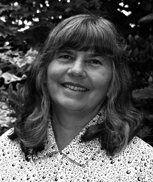As the apocalyptic warnings at the end of the year give way to the Advent promises of new beginnings, I find myself wondering how these readings sound to the people around me in downtown Christchurch, New Zealand. Christchurch has been shaken to its core during the past fifteen months as a series of major earthquakes and aftershocks have destroyed most of the inner city, including the iconic Anglican cathedral, and left many other buildings, in the local parlance, munted, which means that they may look fine from the outside, but their internal structures have become twisted and unsound.
When the earth has literally crumbled beneath your feet, how does it feel to hear Jesus’ words: “All these things you are staring at, the time will come when not a single stone will be left on another”?
I received an answer to my unspoken question from a group of people who had come to make a retreat in the heart of the shattered city. As we gathered, I invited them to share what they were looking for from this time. One after another they spoke of a desire to “go deeper into God,” to find a still center amid all the upheaval, to replenish the heart from a well that no earthquake can undermine.
I recalled what others had told me of their experience of the devastation. “When the earth breaks up beneath your feet,” they told me, “the first thing you do is reach out, literally, to the person standing right next to you.” Strangers in supermarkets grasp you by the hand. People you have never known open their homes to you when your power, water and sewage systems have collapsed. Neighbors you barely recognize greet you with a hug. When apocalypse strikes, it seems, like the beams of the cross we reach out, because we need one another, and we reach down, because we need God.
At the end of our time together, the retreatants gave me a special gift—a pendant of New Zealand greenstone, or pounamu (nephrite jade). Pounamu is found only in New Zealand’s South Island, where it occurs as a direct result of the clash of tectonic plates, which forces seams of rare and delicate beauty to the earth’s surface. It is birthed from the convulsions of destruction, but it is offered as a blessing, and like a blessing it may only be given, never purchased for oneself. Before offering me this gift, each person present held it for a while in a silent prayer, and as they placed it around my neck they sang a Maori blessing: Te aroha, te whakapono, me te rangimarie, tatou tatou e, which translates to, “May love, faith and peace be amongst us all.”
The hands that blessed this gift had also searched for lost loved ones amid the rubble, for broken dreams that might never be rebuilt, for a future that seemed to have closed its doors on them. The voices that sang to me in Maori had also called out in the night in their search for friends and family, had lulled terrified children back to sleep, had spoken words of comfort to grieving neighbors.
When I hold my pounamu and reconnect to the blessing-gift of these friends, it is not hard to make the transition from apocalypse to Advent. It becomes possible to see that our worst upheavals can yield a treasure we could never have imagined. The dream that strangers can become friends, that the human heart can beat in harmony with God’s heart and that fresh buds can sprout from apparently barren trees becomes a promise we can trust because we have seen glimpses of its radiance in the love of our neighbors.
I have to say that I was not prepared for the scenes of devastation I encountered in Christchurch. The retreat house we had intended to use had been destroyed. From its garden I could see across the bay to the city’s once elegant skyline. Now that skyline resembles a row of broken teeth. As we drove back, skirting the cordons surrounding the inner city, something seized my attention. Alongside a half-demolished church stood a large signboard: “Broken, but still beating! We are the heart of Christchurch.”
Not just Christchurch but our universal church, too, is broken and munted in serious ways. Advent might be a good time to remind ourselves that we are her heart, and we are still beating!
Most of us will not be celebrating Advent against such a grim backdrop. But few of us will understand the power of its promise as deeply as these people who know how to go beyond the breaking to discover the beating heart of the matter.








